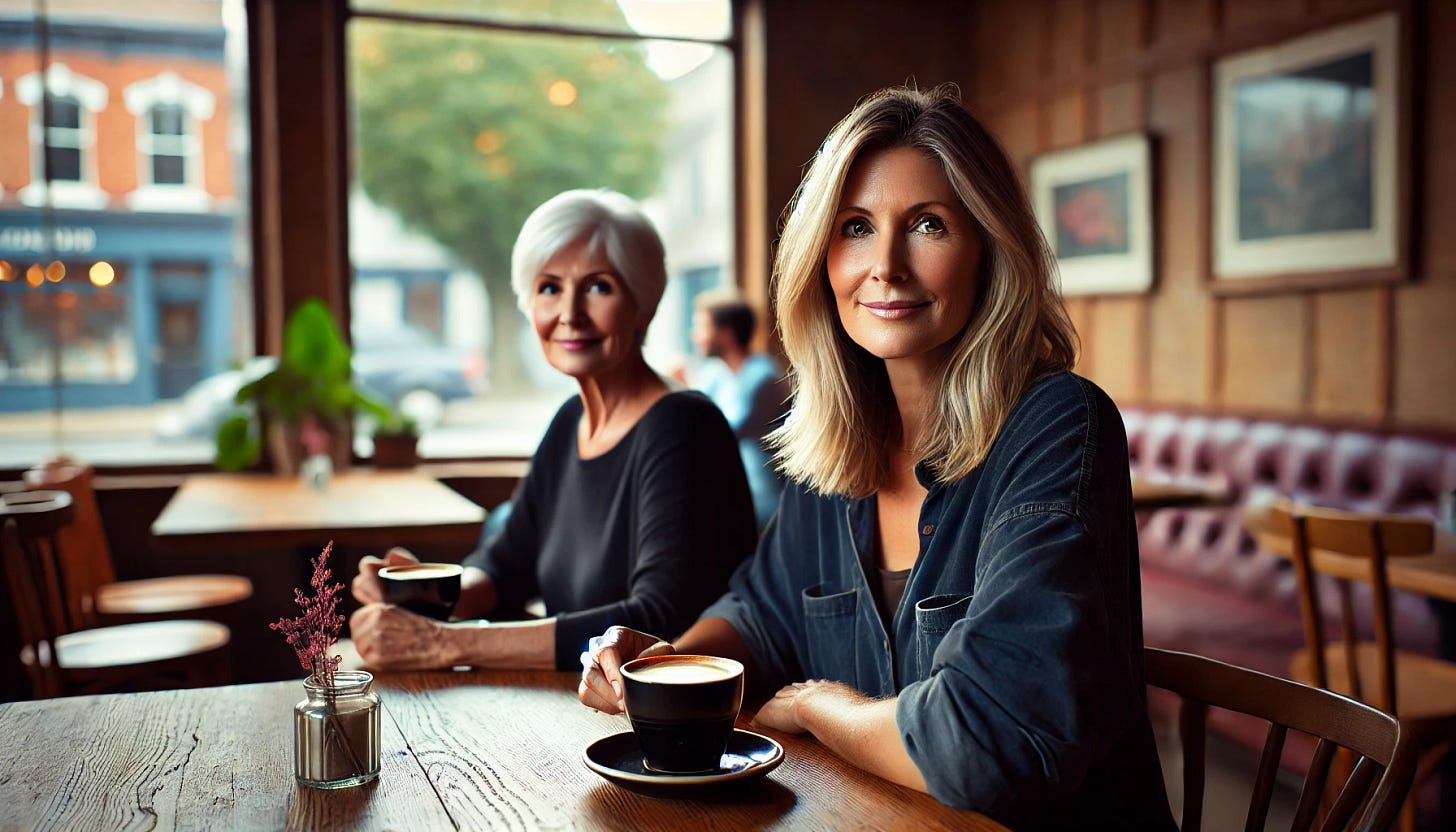You’ve saved for decades — now how do you switch to spending
Now that you’re here at retirement—or getting close—there’s a new challenge: how do you actually spend your money without guilt, anxiety, or the fear of running out?
For decades, you’ve been wired to save, budget, and stretch every dollar. That discipline got you here. You built your pension fund, topped up savings, invested wisely and planned for your epic retirement. But now that you’re here at retirement—or getting close—there’s a new challenge: how do you actually spend your money without guilt, anxiety, or the fear of running out?
This is something so many retirees struggle with. Even when the numbers say they have enough, the idea of withdrawing and spending feels risky, frivolous or even a little bit dangerous. You’ve had a lifetime of conditioning to protect your nest egg, so shifting into spending mode can feel really unnatural. (Do you agree?)
Part of the problem is habit. If you’ve been careful with money for forty years, you don’t just wake up one day and become a spender. Many retirees still track every expense, hesitate over the purchase of things they don’t need and feel uneasy watching their super balance shrink—even when they don’t need to feel that way. And then there’s the fear of running out. Retirement can last twenty-five to thirty years, and no one knows what’s around the corner. Market crashes, big medical bills, living longer than expected or even needing to help your kids out of a sticky place—these are all real concerns. The ‘What if?’ factor stops people from spending, even when they’re in a great financial position.
For some, spending in retirement isn’t about fear, but guilt. They’ve spent a lifetime prioritising their children, mortgages, and bills, and now that they have financial freedom, they hesitate. Spending on travel, hobbies, or a dream purchase feels indulgent—almost like they need to justify every dollar. But here’s the truth: your savings aren’t just there to sit in an account forever and pass to your children when you die. They exist to fund a great second half of life. You’ve earned the right to use your money with intention and joy—not just protect it for ‘one day.’
So what do you do if spending makes you uneasy?
If spending more makes you uneasy, start small. Give yourself permission to enjoy your money by setting aside a specific amount for fun. A dedicated travel fund. A hobby allowance. An experience budget. Whatever makes life richer. And don’t wait too long. The first five to ten years of retirement are when you have the most energy and health to enjoy bigger experiences. I’ve heard too many stories of people putting things off, only to realise later that their health or mobility won’t allow them to do what they had planned.
If you still can’t shake the anxiety, try this: put two years of living expenses in cash and let the rest work for you. Knowing you have a safety net makes it easier to loosen the reins on the rest. And if you’re not ready to make big purchases yet, test it out. Book a short getaway, upgrade your next flight, or finally buy that thing you’ve been eyeing for years. See how it feels. If it doesn’t feel like a mistake, do it again.
The biggest regret I hear from retirees isn’t about running out of money. It’s about waiting too long to enjoy it. People hoard savings in fear, only to realise later that health, time, and opportunities don’t last forever. You won’t run out of money by spending intentionally. But you might run out of time to enjoy it.
So—what’s something you’ve been hesitating to spend on? And what’s stopping you?
Let’s talk about it in the comments
Coffee with my older self — about retirement
Today we’re going to have some fun. There’s a trend on TikTok right now called "Coffee with My Younger Self", where people sit across from an imagined version of their younger self and compare what they thought was important with what actually mattered as they got older. It’s a mix of nostalgia, reflection, and the kind of wisdom that only time can bring. The trend originally started with a poem by Jennae Cecelia, though most people recreating it don’t realise that.
And it got me thinking.
What if we flipped it?
What if instead of meeting our younger selves for coffee, we met our older, retired selves and got advice (and maybe a well-earned kick up the bum)? What if future us sat across the table, stirring their coffee, watching us go through life with all our current assumptions, optimism, and blind spots? Would they be nodding in approval? Raising an eyebrow? Struggling not to choke on their flat white?
Here’s what I imagine future me (or maybe future you) might be thinking. What do you think yours would say? Drop your thoughts in the comments.
1. “You’ve got less time than you think—sort it out now.”
A lot of people in their 50s and 60s assume they’ve got plenty of time to figure things out—retirement planning, super, debt, lifestyle choices. But ask any retiree, and they’ll tell you the years go faster than you expect. Future you would probably say, “Stop waiting. Make some moves now. Get your house in order. Make some plans. Start to dream, save and budget.” Whether that’s finally checking your super balance, working out how much you really need to retire, or deciding what you want this next phase of life to look like—it’s time.
2. “You should have tested retirement before going all in.”
Retirement isn’t a switch you flip—it’s a transition. A lot of people assume they’ll just work full-time one day and be fully retired the next, but that can feel like hitting a brick wall. Future you might suggest a test run—scaling back work, trying a part-time role, or taking a long break or sabbatical to see what retirement actually feels like before making any big decisions. You don’t know what you don’t know, and testing things out could save you from diving into a lifestyle that doesn’t actually suit you.
3. “You worried too much about your money—and not enough about your health.”
Most people in their 50s and 60s stress about whether they have enough money to retire, but future you might say, “Mate, you should have looked after yourself first.” Because what’s the point of having financial security if you’re too unfit, unwell, or exhausted to enjoy it? Investing in your healthspan—staying strong, mobile, and healthy—is just as important as investing in your wealthspan.
4. “You should have spent more on experiences, less on stuff.”
It’s easy to get caught up in buying things—home renovations, new cars, expensive furniture and fancy jeans—but future you might roll their eyes and say, “That new kitchen didn’t change your life, but the trip to Italy did.” Research shows we get more long-term happiness from experiences than from things. So maybe it’s time to rethink what’s actually worth spending on.
5. “Retirement isn’t what you think it is.”
A lot of people picture retirement as either endless leisure or financial doom, but in reality, it’s neither. Future you might say, “Why did you assume you had to follow the old script?” You don’t have to stop working completely at 65 if you don’t want to. You also don’t have to stay in a job you hate just to hit some magic number. More and more people are shaping retirement in their own way—part-time work, passion projects, sabbaticals, reinvention. You get to decide what this phase of life looks like.
So, what would future you say?
Let’s call it “Coffee with my older self” and let’s do it in the comments. But here’s the thing—most of us already know what future us would say. The real question is, what are we going to do about it now?
If future you sat down for coffee with you today, what advice would they give? And are you ready to listen?
My oldest pup is very unwell, and it’s been a rough few days. He’s spent half the week paralysed, leaving the vets scratching their heads and wondering if it’s tick poison or something else. So this weekend, I’m part retirement educator, part nurse, hoping he’ll turn a corner soon. In the meantime, I’m his full-time carer—and he needs a lot of care.
Meanwhile, the Epic Retirement Course in Australia is rolling into Week 2. I love seeing the lightbulb moments as people share their experiences with each other and learn new things. And I really hope we can be running these programs in other countries by year end.
On the book front, I got my hands on the first laid-up version of Prime Time this week—the typesetting is done (yay!), and it’s looking fantastic, if I do say so myself. Just a couple more rounds of review, and then it’s off to the printer! And the international editions are in discussions with publishers right now! So are the international editions of How to Have an Epic Retirement.
SYDNEY EVENT ALERT: In two weeks, I’ll be speaking at two big, free public events at the West Ashfield Club in Sydney as part of Seniors Fest, hosted by the Inner West Council. There’s a daytime session and an evening session, so if you’re in Sydney, you can grab a spot here. Would love to see you there!
And that’s the week I’ve had. Hope you’ve had a better one than me.
Always remember you can always email me at bec@epicretirement.net. I love it when you tip me off on things that I can help with or reply with insights.
Many thanks! Bec Wilson
Author, podcast host, columnist, retirement educator, and guest speaker









Really interesting topic. I am just starting my early retirement journey and plan to have a clear budget. And trying to tell myself if I stay within that budget, then everything is guilt free spending (no matter what it is for). Logically, it sounds great, but I'll soon see if it works. :)
Great points Bec. It's a global issue going I've been tracking for decades that as people hit their 60s the need to "not spend" often out weighs the "ability to spend".